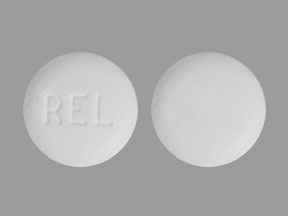Methylnaltrexone Disease Interactions
There are 3 disease interactions with methylnaltrexone.
Peripheral opioid receptor antagonists (applies to methylnaltrexone) intestinal obstruction
Major Potential Hazard, Moderate plausibility. Applicable conditions: Gastrointestinal Obstruction, Diverticulitis, Peptic Ulcer, Inflammatory Bowel Disease
Peripheral opioid receptor antagonists are contraindicated in patients with known or suspected gastrointestinal obstruction, and in patients at increased risk of recurrent obstruction, due to the potential for gastrointestinal perforation. Cases of gastrointestinal perforation have been reported in patients with opioid-induced constipation and advanced illness with conditions that may be associated with localized or diffuse reduction of structure integrity in the wall of the GI tract such as peptic ulcer, diverticular disease, Crohn's disease, infiltrative GI tract malignancies or peritoneal metastases. It is recommended to monitor for the development of severe, persistent, or worsening abdominal pain and to discontinue treatment in patients who develop symptoms. The overall risk- benefit profile should be carefully evaluated before using these agents in patients with these conditions.
Methylnaltrexone (applies to methylnaltrexone) hepatic impairment
Moderate Potential Hazard, Moderate plausibility. Applicable conditions: Liver Disease
Studies have shown a significant increase in systemic exposure of methylnaltrexone in patients with moderate and severe hepatic impairment, compared to subjects with normal hepatic function. A dosage reduction is recommended in these patients. No dose adjustment is needed in patients with mild hepatic impairment.
Peripheral opioid receptor antagonists (applies to methylnaltrexone) renal impairment
Moderate Potential Hazard, Moderate plausibility. Applicable conditions: Renal Dysfunction
Patients with moderate, severe and end-stage renal disease have shown to exhibit markedly higher systemic exposure to peripheral opioid receptor antagonists such as methylnaltrexone and naloxegol, compared to subjects with normal renal function. A dose reduction is recommended for these patients. No dosage adjustment is needed in patients with mild renal impairment.
Switch to professional interaction data
Methylnaltrexone drug interactions
There are 26 drug interactions with methylnaltrexone.
Methylnaltrexone alcohol/food interactions
There is 1 alcohol/food interaction with methylnaltrexone.
More about methylnaltrexone
- methylnaltrexone consumer information
- Check interactions
- Compare alternatives
- Reviews (65)
- Side effects
- Dosage information
- During pregnancy
- Drug class: peripheral opioid receptor antagonists
- Breastfeeding
- En español
Related treatment guides
Drug Interaction Classification
| Highly clinically significant. Avoid combinations; the risk of the interaction outweighs the benefit. | |
| Moderately clinically significant. Usually avoid combinations; use it only under special circumstances. | |
| Minimally clinically significant. Minimize risk; assess risk and consider an alternative drug, take steps to circumvent the interaction risk and/or institute a monitoring plan. | |
| No interaction information available. |
See also:
Further information
Always consult your healthcare provider to ensure the information displayed on this page applies to your personal circumstances.


